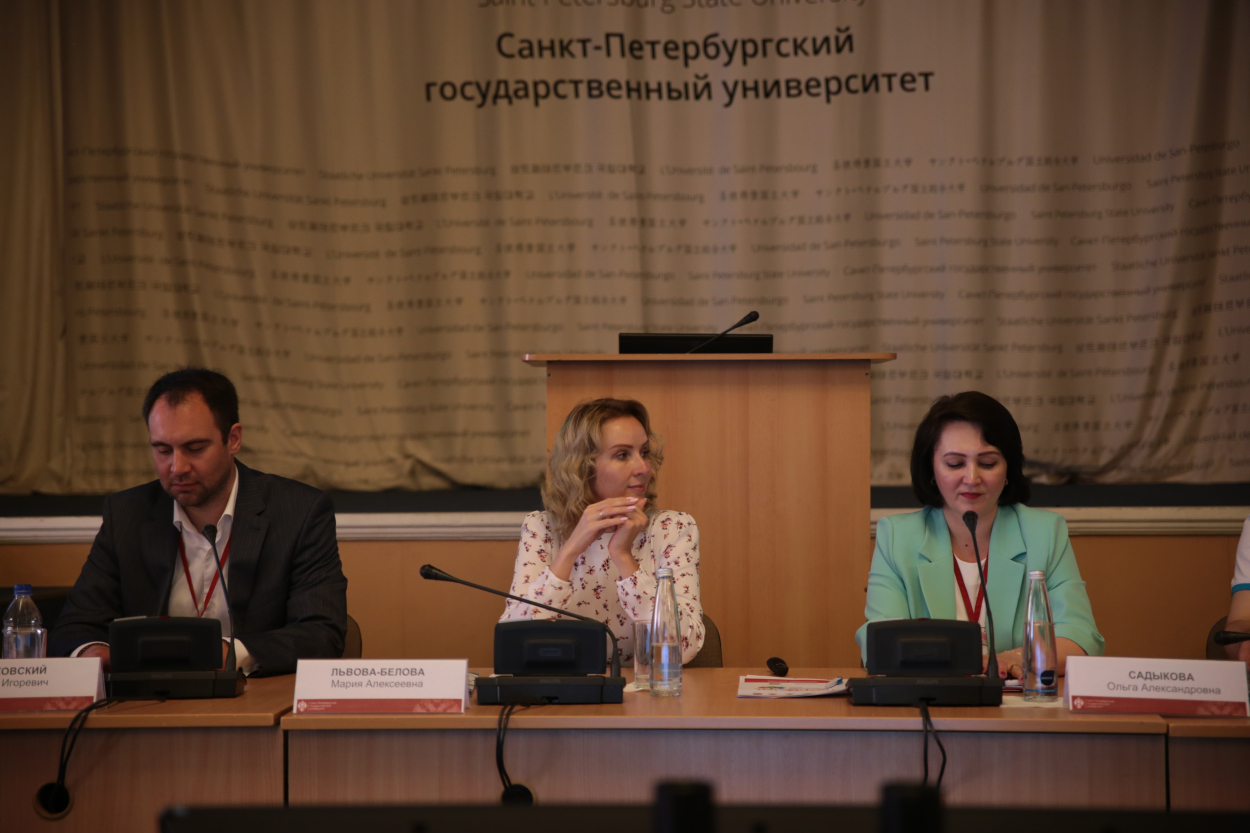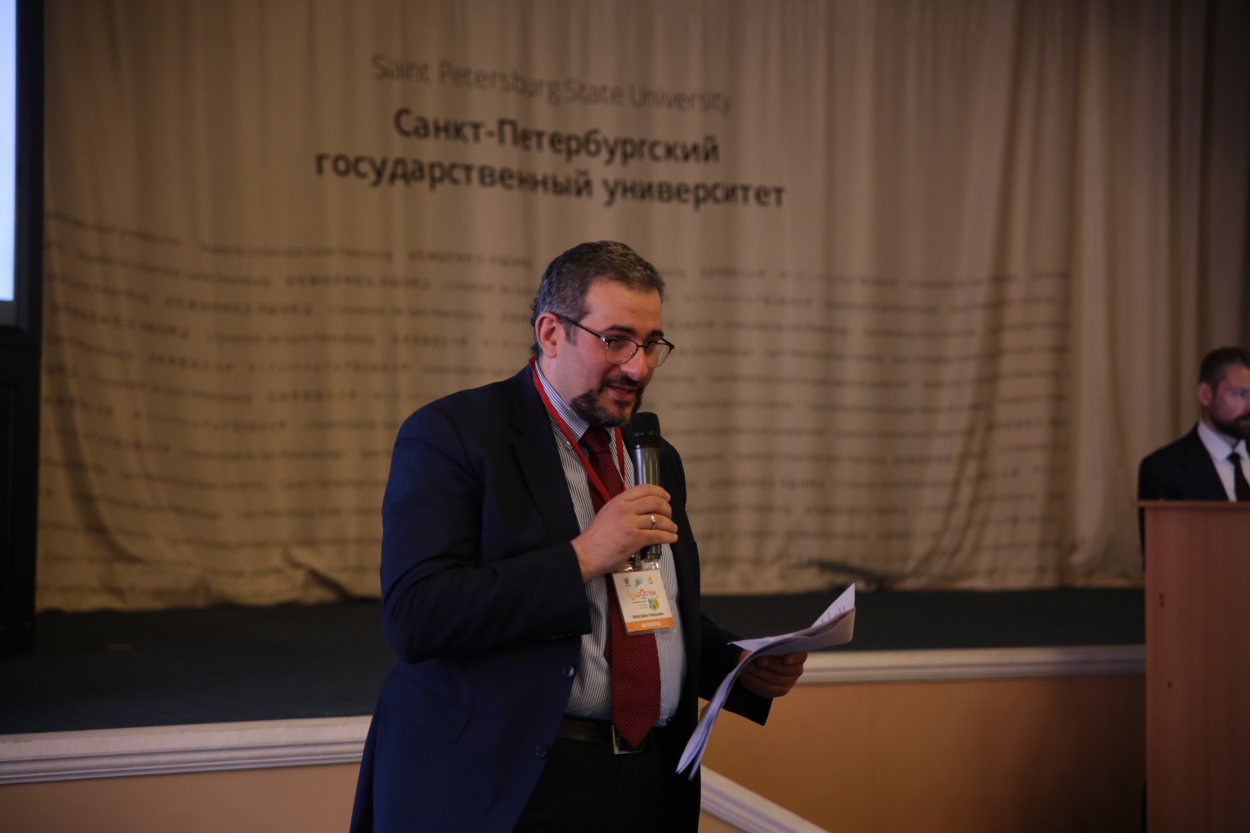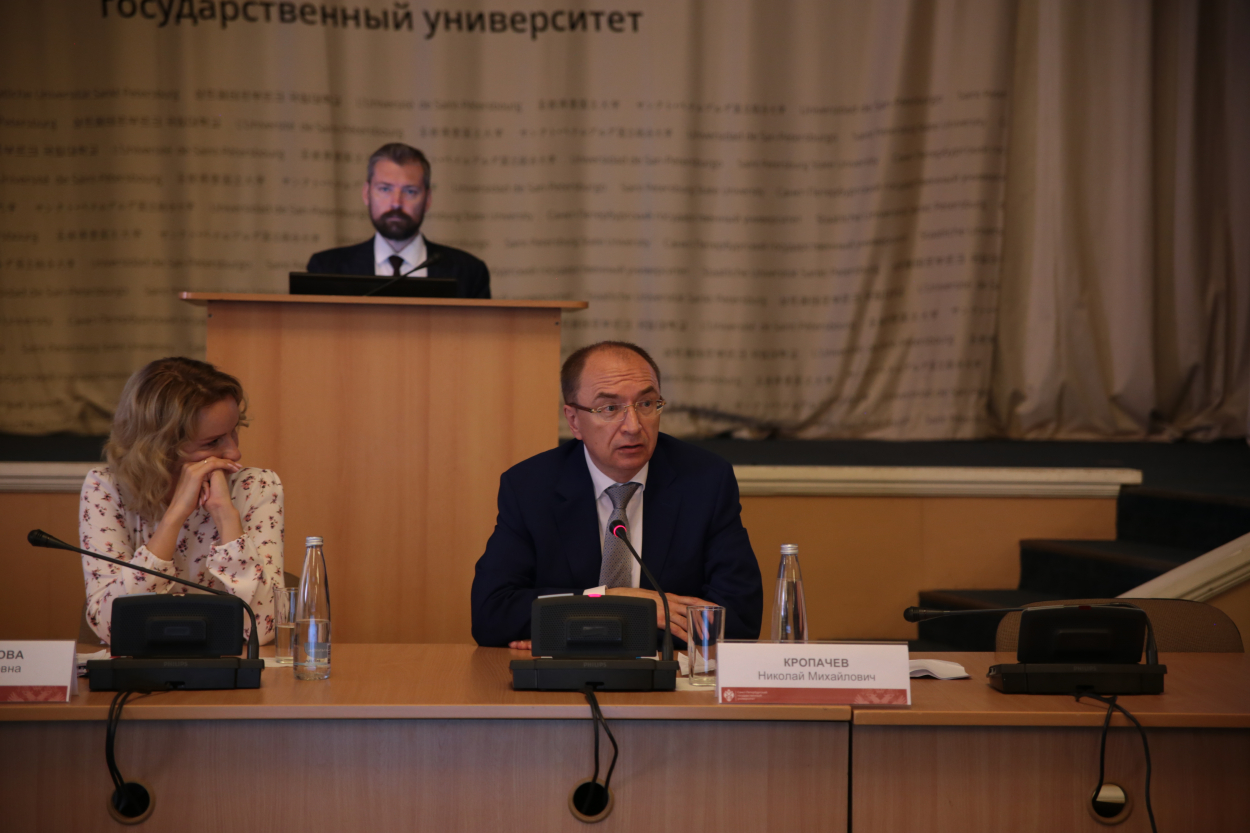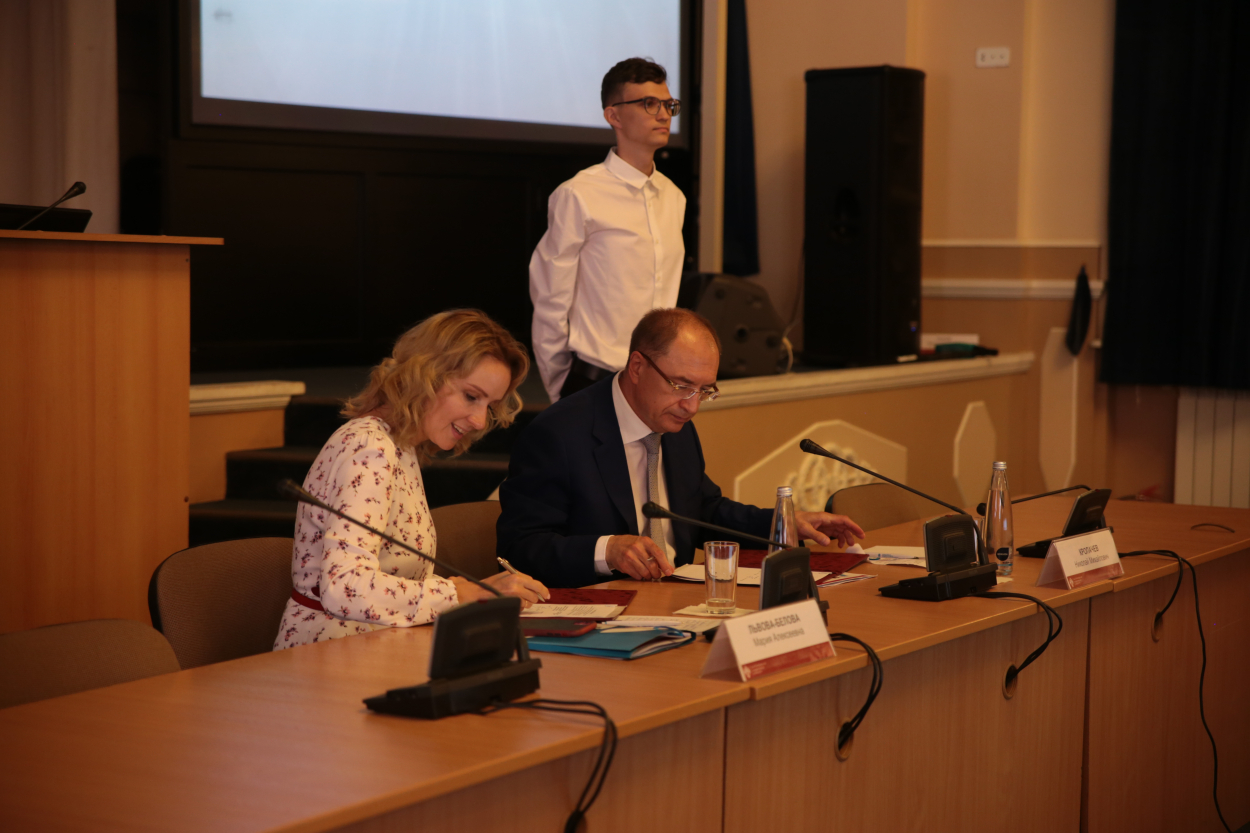St Petersburg University and the Commissioner for Children’s Rights under the President of the Russian Federation sign a cooperation agreement
St Petersburg University has hosted the first Teenagers 360 Interregional Forum. It focuses on interaction of public sector, non-government organisations and specialists that provide socialisation and support for young people. Among the participants were: representatives of relevant federal and regional ministries and departments; non-government organisations; and psychologists and teachers who work with teenagers. At the forum, an agreement on cooperation was signed between St Petersburg University and the Commissioner for Children’s Rights under the President of the Russian Federation.
Opening the plenary session, Presidential Commissioner for Children’s Rights Maria Lvova-Belova said that teenagers are a special group of children, "difficult adults", and educational work with them is at the focus of our country.
‘Teenagers are 9 million people who are 12 to 17 years old. It is almost a third of the child population of the country. This age of intensive development is associated with a wide variety of risks, including also those associated with destructive behaviour. The task of society is not to neglect our teenagers, but to support them help to grow up’, said Maria Lvova-Belova. ‘The most important things are to: create an accepting environment for them; develop their self-confidence, a positive image of their own future; help overcome the difficulties of the transition period; and direct their energy towards something creative.’
The Teenagers 360 Interregional Forum will launch a series of similar conferences in Novosibirsk, Vladivostok, and Moscow. The RosPodros resource was developed to ensure exchange of scientific knowledge. According to the organisers, it should become not just a library, but also a place of live communication between specialists across the country.
Nikolay Kropachev, Rector of St Petersburg University and Corresponding Member of the Russian Academy of Sciences, presented to the forum participants the research capabilities of St Petersburg University and explained how they can be used to study issues related to adolescents. St Petersburg University opened the first legal clinic in Russia in the 19th century. Today, under the supervision of experienced academic staff, students provide free legal assistance to citizens during internships as part of the teaching and learning process. ‘We have the Psychological Clinic; the Archival Centre; the Linguistic Clinic; the Social Clinic; and the Sociological Clinic to name but a few. Students, under the guidance of experienced academic staff, provide assistance to thousands of people,’ said Nikolay Kropachev.
‘We can include topics related to adolescents in the work of our clinics and organise practical work with children, using the potential of the Institute of Pedagogy; the Institute for Cognitive Research; lawyers; psychologists; and St Petersburg University Volunteer Centre.’
In 2021, St Petersburg University researchers assessed how laws were used by examining 10,000 documents.
Nikolay Kropachev, Rector of St Petersburg University, said that, for the last 12 years, the University specialists have been collecting, summarising and analysing the practice of how regulations are used by public sector of the federal and regional levels and local governments. They are ready to continue this work in this area in St Petersburg and across the country. The work with teenagers is proposed to be included in research and examinations under the orders from judicial, executive and legislative authorities.
It seems to me very important that the first Teenagers 360 Interregional Forum is held at the oldest university that has always been at the forefront of research and education and offered new approaches in research and analytics. It is significant that such an important and current topic is being discussed here today. Nikolay Kropachev has supported us in this issue and offered so many forms of support for further work. I think that this will be a large-scale fruitful work that will bring serious results.
Maria Lvova-Belova, Commissioner for Children’s Rights under the President of the Russian Federation
Maiia Rusakova, Director of the Centre for Sociological and Internet Research at St Petersburg University, spoke to the conference participants about the expectations, problems and opportunities of today’s teenagers. She noted that, despite the existence of well-developed scientific theories that explain the behaviour of children in adolescence, professionals often do not know how to apply them in practice. Additionally, interest in the study of extremes in behaviour led to discovery of the fact that the ‘risk group’ and gifted children are the most studied areas of research.
‘There are young people who are prone to deviant behaviour. There are creative young people. Yet who is in the middle? Who is an average teenager who is neither very talented, nor deviant? They have their own aspirations, yet they do not go to seven extra-curricular courses. They sit with their phones, and everyone scolds them for it. They do not know what they want to do in life. Yet this is normal for teenagers,’ said Maiia Rusakova. ‘We need this 360-degree view to see ordinary teenagers as they are, with their problems that are far from being global.’
Maiia Rusakova, Director of the Centre for Sociological and Internet Research at St Petersburg University, noted that, for a long time, the period of childhood was approached in sociology exclusively as a stage of preparation for adulthood. Yet 18 years is a long period of time that it cannot be considered only as preparatory. When viewed only from this angle, its value is lost.
Largely due to the age-specific characteristics of teenagers, it is difficult for them to plan what will happen to them in a few years. We constantly tell them "when you grow up" or ‘when you finish school’. This reduces the degree of our attention to what is happening here and now. Yet today researchers correctly assess the period of minority as an independent life stage. This approach is referred to as the "new sociology of childhood".
Maiia Rusakova, Director of the Centre for Sociological and Internet Research at St Petersburg University
The main task of research that focuses on adolescents and their problems is to develop a competent state policy and provide assistance to children in need. St Petersburg is a unique region in terms of the breadth of opportunities offered, yet sometimes it is difficult to get support. Conducting monitoring studies will ensure that we can identify youth policy programmes that have proven to be effective and, if necessary, adjust them to bring real benefits to adolescents. It is essential to involve children and young people in the planning of research, since sociologists do not always know what worries them, said the expert.
In the format of the poster session at the Teenagers 360 Interregional Forum, the results of the pilot study conducted by students at the Sociological Clinic at St Petersburg University were presented. The project developed several methods to study the opinions of specialists, teachers, and adolescents.





